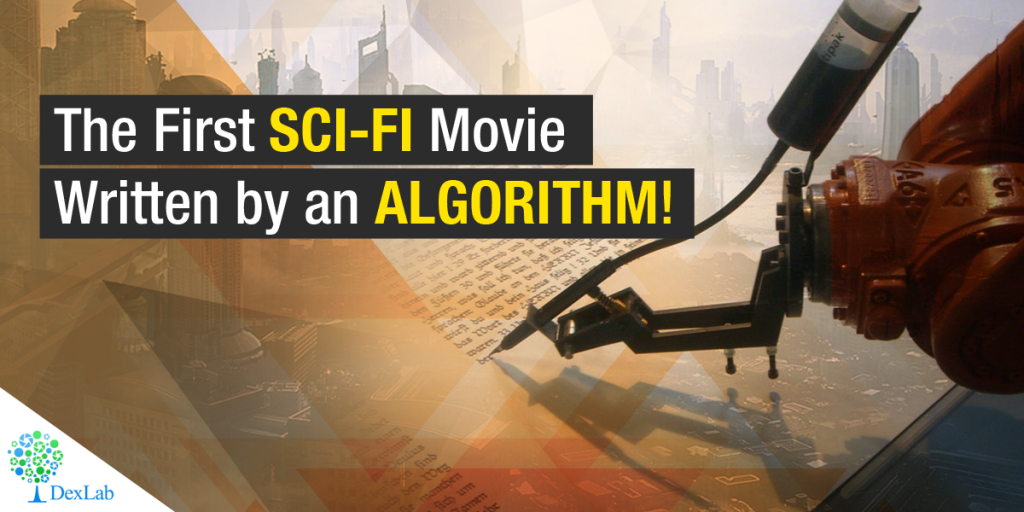If you thought algorithms were these boring formulas that have no point, then it is time for you to rethink. Algorithms these days are replacing the need for human intellect altogether (do you smell a hint of irony in there?). As much as this may sound totally unbelievable but it is in fact the truth. The first ever short film has been made that is completely written by an algorithm, and is finally out and it is pretty great. Although the convoluted dialogues of the screenplay needs a few mental gymnastics to be performed by the audience’s brains, but then again isn’t that the best thing about sci-fi movies after all?
The story behind this amazing film starts with an aspiring film-maker Oscar Sharp, named appropriately for the movie-making world (Again irony… Get it? Oscar… movies?!). This young screenplay writer wanted to submit a plot for Sci-Fi London’s 48 Hour Film Challenge. So, to create the next big hit in the world of Sci-Fi short films he read all the screenplays he could find, of the best sci-fi movies on the internet. Then the right inspiration struck him and he came up with the idea to feed all these movie plots into an algorithm, starting from movies like Ghostbusters to The X-Flies and movies like Interstellar, The Fifth Element and many more and let the algorithm work up on a script on its own. Ingenious you say or was it a complete idiocy? Only to be discovered later that it was a great idea only with the right algorithm.
So, who brought in the magic movie writer algorithm? Sharp contacted his long-time collaborator Ross Godwin who is an AI (artificial intelligence) researcher at NYU. And Godwin employed this AI Bot called Benjamin up to the task of scripting this movie.
The movie begins with their innovative story behind making the movie which was written by a bot. and then goes on into the main screenplay of the movie. Surprisingly Benjamin created a screenplay that involved it all a good sci-fi movie should have, and all that in just 9 minutes of which 7 minutes was the main movie and rest were two credits scenes. When speaking of Benjamin, the LSTM recurrent neural network an AI which is often used for text recognition pulled up quite a script for making this movie. The way it worked is by simply ingesting different screenplays of the most popular sci-fi movies, then dissecting them down to the most probable letters or words and even phrases that are likely to come about.
Without unintentionally revealing spoilers of this must watch script called Sunspring, all we would like to comment about this astonishing feat by an algorithm is that Benjamin the AI robot still needs to learn a little more about the nuances of human emotions and their relation with their speech. While the initial dialogues are mostly fragmented in the film, but this movie is still one-of-a-kind for those with a taste for convoluted and eclectic sci-fi entertainment. The actors did a fine job with what they were given and deliver dialogues passionately which adds to the main component of sense attached to the movie.
The movie world and sci-fi entertainment enthusiasts still remain skeptical about the feasibility and utility of using an algorithm to write screenplays which are considered to be a skill set possessed by only the most creative and imaginative of the human species. But has Benjamin proved this common notion to be wrong? Does the future of algorithms now also include this new chapter of creating stories? Should we offer a fresh new look at the utility of algorithms in the future? Only time will tell the right answers to these questions, but it is still a fascinating prospect that can pique the interests of scientists, movie-makers and average audiences all the same.
This article is the first of our series on the future of algorithms and how they can change our world in the most unimaginable ways. Stay hooked to our daily uploads to find out more such interesting stories of algothimic success stories.
Our Online Courses: MS Excel, Data Science, Credit Risk Analytics And Modeling

Comments are closed here.